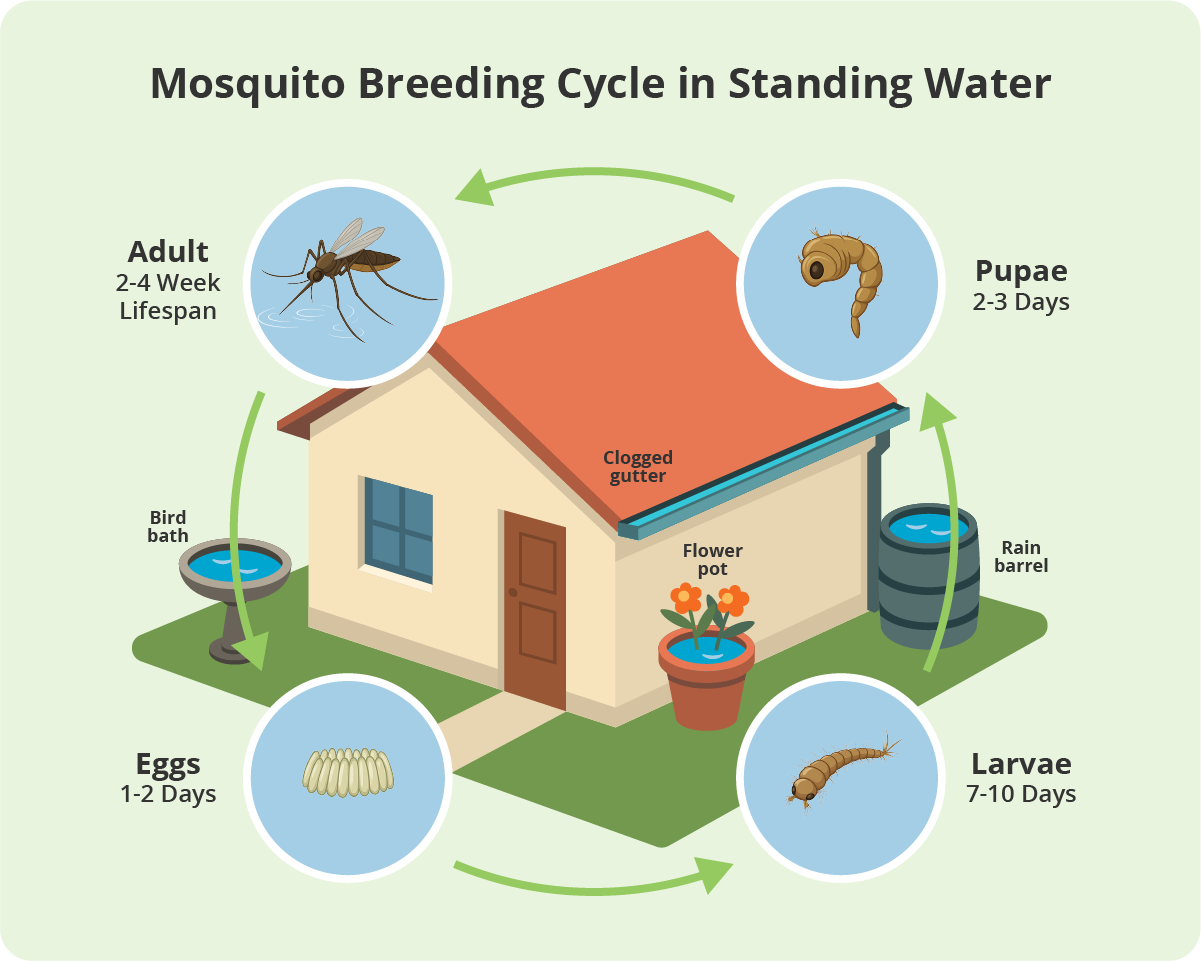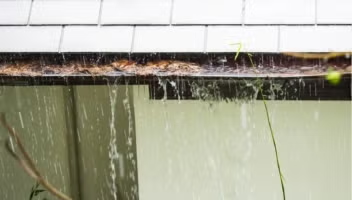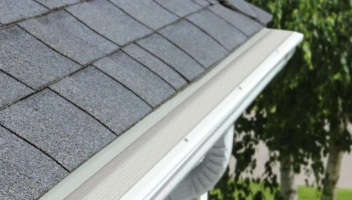America’s Most Mosquito-Prone Cities: Where Rainfall and Heat Create the Perfect Storm

As temperatures rise and rainfall increases across much of the southern U.S., mosquito season kicks into high gear. These pests aren’t just an itchy nuisance. They also carry diseases like West Nile, Zika, and dengue. And the conditions that attract them? Heat, humidity, and standing water.
In this analysis, we reveal the top 10 U.S. cities with the most mosquito-friendly environments from April 2024 to March 2025. These cities aren’t just hot and rainy – they’re prime mosquito breeding grounds, especially when home maintenance (like gutter cleaning) gets overlooked.
Key Takeaways
- Southern states dominate the list. Cities in Florida and Louisiana take nine of the top 10 spots thanks to consistently high temperatures and rainfall.
- Mosquitoes love standing water. Clogged gutters and blocked downspouts create ideal conditions for breeding.
- Prevention is possible. Regular gutter maintenance and draining outdoor water sources can dramatically reduce mosquito risks.
How We Created This List
Using the latest U.S. weather data from April 2024 through March 2025 from the National Centers for Environmental Information, we ranked cities based on two key mosquito breeding conditions: high annual precipitation and average yearly temperatures over 70°F. These warm, wet environments allow mosquito eggs to hatch quickly and populations to thrive.
The Top 10 Most Mosquito-Prone Cities
Due to obvious climate factors, most towns and cities across the south are hotbeds of mosquito activity. Here are the top ten most mosquito-prone places according to our research:

1. Tampa, FL
Tampa gets over 78 inches of rain a year and stays warm, with average temps around 75.5°F. That combo of heat and summer storms creates the perfect environment for mosquitoes. While the city offers mosquito control services, clogged gutters are a common problem. Cleaning your gutters monthly during the rainy season can help prevent standing water and keep mosquitoes away.
2. New Orleans, LA
New Orleans gets lots of rain (76.74 inches) and stays warm at around 72.6°F. Because parts of the city flood easily and the drainage system is old, it’s easy for water to sit around, which gives mosquitoes a place to lay eggs. The city does spray for mosquitoes, but it’s still important to keep your gutters clear. Gutter guards can help stop leaves from building up and causing blockages.
3. Fort Myers, FL
Fort Myers is hot and rainy, with 73 inches of rain and average temperatures around 77.5°F. The city has had issues with mosquito-borne diseases in the past. To protect your home, check for stagnant water in birdbaths, flowerpots, or the bends in your gutters after rain.
4. Lafayette, LA
Lafayette gets about 67 inches of rain a year and stays warm at 71.7°F. It’s a city that floods often, so mosquito control is a regular concern. A simple tip: rinse out your gutters at the beginning and end of every season to keep them from collecting water.
5. Jacksonville, FL
Jacksonville gets more than 64 inches of rain and averages around 70.6°F. With lots of wetlands and suburbs, it’s easy for mosquitoes to thrive. Make sure your downspouts send water at least 6 feet away from your house to stop puddles from forming near your foundation.
6. Miami, FL
Miami is one of the hottest cities on the list, averaging nearly 79°F, and it sees about 64 inches of rain each year. The city has had Zika outbreaks before and still puts a big focus on mosquito prevention. You can help by covering rain barrels with mesh and making sure your gutters drain away from the house.
7. Tallahassee, FL
Tallahassee sees about 61 inches of rain each year and stays around 70.7°F. With so many trees, gutters can easily fill up with leaves. This makes for perfect breeding spots for mosquitoes. Trimming trees near your roof can help reduce how much debris ends up in your gutters.
8. Baton Rouge, LA
Baton Rouge gets over 59 inches of rain and averages 71.8°F. Heavy storms often lead to drainage problems. After a big rain, take a look at your gutters to make sure there’s no standing water or overflow.
9. West Palm Beach, FL
West Palm Beach gets nearly 54 inches of rain a year and has a hot climate similar to Fort Myers. While the county sprays for mosquitoes, your home still needs good drainage. Clean your gutters every few months and check for signs like algae or mold that mean water is getting stuck.
10. Houston, TX
Houston gets nearly 49 inches of rain and stays warm at about 74°F. Because the land is so flat, water doesn’t drain well in many areas. A good fix is to add splash blocks or extensions to your downspouts so water flows away from your home instead of pooling up.
Mosquito Risk & Gutter Maintenance
Why are clogged gutters such a concern during mosquito season? Simple: mosquitoes lay eggs in still water. Just a few ounces of water can produce hundreds of larvae.
When gutters are blocked by leaves, twigs, or roof debris, water gets trapped instead of draining. That stagnant water becomes a perfect breeding ground. According to the CDC, mosquito eggs can hatch in 48 hours, meaning neglected gutters can quickly lead to infestations.
The CDC recommends removing all sources of standing water around the home at least once a week. This includes clearing out gutters, draining kiddie pools, emptying plant saucers, and even shaking out tarps. Prevention starts with awareness and basic maintenance.
Companies like LeafFilter offer gutter protection systems that help block debris and keep water flowing. It’s a simple but effective solution to keep mosquitoes (and other pests) at bay.

Protect Your Home from Mosquitoes with Smarter Gutter Solutions
As this study shows, cities with high rainfall and warm temperatures are especially vulnerable to mosquito infestations, and that risk climbs even higher when gutters aren’t draining properly. Stagnant water in clogged or poorly designed gutters creates the perfect conditions for mosquitoes to breed. In regions like Florida, Louisiana, and Texas, where both rain and humidity are the norm, prevention is essential.
LeafFilter’s professionally installed gutter guard system is a powerful line of defense. Built with a stainless steel micromesh and backed by industry-leading testing, LeafFilter keeps out debris while allowing water to flow freely even during heavy downpours. That means no trapped water, no clogged downspouts, and fewer opportunities for mosquitoes to multiply.
Unlike DIY guards that often fail in high-volume storms, LeafFilter is engineered to handle intense rainfall without compromising performance (read more). It’s part of a complete water management strategy that protects your roof, foundation, and family health (gutter drainage overview).
If you live in one of the top mosquito-prone cities (or any area with a warm, wet climate) now is the time to act. A clog-free gutter system isn’t just good for your home; it’s a smart step toward a safer, bite-free summer.
Learn how LeafFilter can help protect your home year-round.
Methodology
This campaign ranks the top 10 U.S. cities with the ideal environmental conditions for mosquito breeding—specifically areas that combine high annual precipitation with average yearly temperatures above 70°F.
U.S. weather data for April 2024–March 2025
- Source 1: National Climate Report (Precipitation)
- Source 2: National Climate Report (Temperature)
Both datasets were filtered for cities where:
- Average annual temperature > 70°F
- Highest annual rainfall totals


